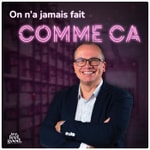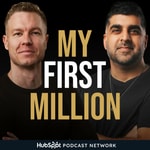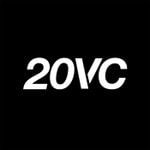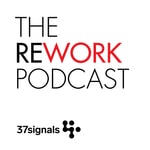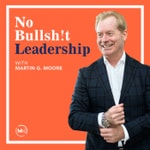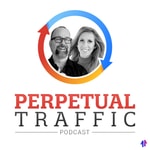Inside Education - a podcast for educators interested in teaching – Détails, épisodes et analyse
Détails du podcast
Informations techniques et générales issues du flux RSS du podcast.
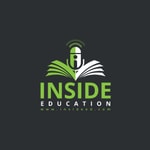
Inside Education - a podcast for educators interested in teaching
Sean Delaney
Fréquence : 1 épisode/15j. Total Éps: 300

Classements récents
Dernières positions dans les classements Apple Podcasts et Spotify.
Apple Podcasts
🇬🇧 Grande Bretagne - howTo
25/06/2025#70🇬🇧 Grande Bretagne - howTo
24/06/2025#42🇩🇪 Allemagne - howTo
17/06/2025#75🇩🇪 Allemagne - howTo
16/06/2025#51🇬🇧 Grande Bretagne - howTo
07/05/2025#78🇬🇧 Grande Bretagne - howTo
06/05/2025#36🇬🇧 Grande Bretagne - howTo
15/03/2025#56🇫🇷 France - howTo
28/01/2025#92🇫🇷 France - howTo
27/01/2025#77🇫🇷 France - howTo
26/01/2025#64
Spotify
Aucun classement récent disponible
Liens partagés entre épisodes et podcasts
Liens présents dans les descriptions d'épisodes et autres podcasts les utilisant également.
See all- https://zoom.us/
664 partages
- https://jamesclear.com/atomic-habits
569 partages
- https://www.nasa.gov/
405 partages
- https://twitter.com/
1351 partages
- https://twitter.com/#
187 partages
Qualité et score du flux RSS
Évaluation technique de la qualité et de la structure du flux RSS.
See allScore global : 27%
Historique des publications
Répartition mensuelle des publications d'épisodes au fil des années.
Inside Education 430, Perry Share on Artificial Intelligence and the Future of Teaching (4-6-24)
Épisode 313
mardi 4 juin 2024 • Durée 59:06
Presented and produced by Seán Delaney.
On this week's podcast my guest is Perry Share, who is Head of Student Success at Atlantic Technological University. Among the topics we discuss are:
- The impact of taking a module with Hilary Tovey on rural sociology and a module with Brian Torode and Barbara Bradby on language, discourse and French theory.
- Perry’s belief that artificial intelligence is a catalyst that helps us better understand and question contemporary practices around teaching, learning and assessment.
- Artificial intelligence forces us to ask questions like "What does it mean to assess students?" "How can we teach in ways that are engaging and productive for students?"
- In education, the arts and the humanities, we take text as a representation of what is in students’ heads and tend to make assumptions about the knowledge, understanding or learning held by the student. The foundation is taken out of this when we don’t know where the text comes from.
- Problems are outlined with the take-home assignment, oral assessments and standard written exams but the “unsolvable” problems may constitute a productive space for educators.
- The likes of ChatGPT can be used effectively in fields where you have knowledge. An area of concern in higher education is in relation to fields where people are just beginning to acquire knowledge and understanding. In addition, artificial intelligence threatens opportunities to learn on internships in professional placements.
- Perhaps the role of “learned” knowledge becomes increasingly important for novices in a field whereas in recent years the importance of critical thinking has been lauded.
- It is likely that resources will need to shift from activities we currently value to new – yet-to-be-determined – resources at secondary and higher education levels.
- What prompt engineering is.
- Ethan Mollick’s book Co-Intelligence.
- Examples of good and not-so-good prompts.
- How Perry is using ChatGPT in his own work: summarising large documents; combining documents; Brainstorming; Outlining a proposed structure of a document or presentation. It has been used for computer programming and other tasks.
- Data protection implications may need to be considered in relation to some uses.
- In the future it may be used to grade and provide feedback for public exams.
- Various kinds of data on the results would be available almost immediately.
- Decline in language learning in many countries due to the dominance of English and due to the availability of translation tools.
- The days of the academic essay may be numbered.
- Simulations may be a future direction of assessment in professional settings but these too are not without complications.
- Can we avoid interacting with artificial intelligence?
- Impact on equity in education.
- If students can teach themselves, where does that leave the teacher? There is a job of imagination for teachers to start thinking about how they will work alongside artificial intelligence.
- The impact of artificial intelligence on what (and who) we can trust.
- People Perry respects on the topic of artificial intelligence: Anna Mills, a lecturer in academic writing in the United States; Charles Knight who works for Advance HE; Maha Bali at the America University of Cairo on critical artificial intelligence (environmental, commercial and ethical impacts).
- The purpose of school.
- Daryl Nation
- Raewyn Connell’s book The Good University.
Perry's own expanding list of resources on artificial intelligence is available here.
Inside Education 429, Gene Mehigan on The Master by Bryan MacMahon (4-5-24)
Épisode 312
samedi 4 mai 2024 • Durée 49:50
Presented and produced by Seán Delaney.
The format of this podcast differs a bit from the usual one in that I am joined by my colleague in Marino Institute of Education, Dr. Gene Mehigan to discuss a book that influenced him on his journey as a teacher and teacher educator. The Book is The Master by Bryan MacMahon, published by Poolbeg Press in 1992. Among the topics we discuss are the following:
- How a book about teaching in Rural Ireland from the 1930s to the 1970s could speak to a teacher in a DEIS band 1 school in Darndale in the 1980s and 1990s.
- The consequences of poverty on children in schools.
- The “stain” of large classes (and their impact on children with language difficulties in particular).
- The importance of reading
- How Bryan MacMahon encouraged children to collect words (red notebook) and Gene Mehigan’s variation of it (jar on teacher’s desk).
- Stages in a reading lesson as outlined by Bryan MacMahon (who noted that they are not rigid and may need modern modification):
- Arousal of interest (day before)
- Introduction (before lesson begins to heighten interest in the text)
- Examination of matter expressed in the text (Comprehension)
- Examination of matter implied in the text (Comprehension)
- Write difficult words on blackboard (Tier 1, 2 and 3 words today)
- Teacher models reading
- Children read aloud or silently
- Isolate phrases for composition usage
- Informed organic chat (in style of everyday conversation)
- Dramatisation of the text (Reader’s theatre today)
- Committal to rote “not to be scorned on special occasions”
- Why a teacher needs to back down in a confrontational situation with a pupil
- Characteristics of a good teacher;
- Dedication
- Sense of humour
- Clear penetration in the timbre of the teacher’s speaking voice
- A love of learning
- Versatility of approach to a lesson
- A congenial monotony (that can be departed from)
- Occasional informal language
- Good blackboard use and being able to sketch
- Act in harmony with the traditions and culture of the school area
- Bringing the extraordinary into your teaching.
- The teacher’s job is to help each child find their special gift.
- Bryan MacMahon: “I realised that each child had a gift, and that the ‘leading out’ of that gift was the proper goal of teaching. To me a great teacher was simply a great person teaching.”
- Thoughts on a school library, access to books and encouraging children to read.
- Trying to entice children to read by tidying books. Buddy reading – to help beginning or reluctant readers but also helping older children consolidate their interest it reading. Helping a teacher narrow down who in a class might have dyslexia
- How Brian MacMahon practised an early version of “home-school liaison”
- Contemporary resonances – children from Germany fostered by local families during World War II.
- How Bryan MacMahon recruited children to look after other children who were vulnerable in some way
- Resonances with Johathan Haidt’s book The Coddling of the American Mind (preparing the child for the road and not the road for the child).
- How learning tables enthusiastically helped a pupil later excel as an emigrant
- “A school is nothing if it is not a place of laughter and song.”
- Sources of creativity in education
- The importance of a teacher being a philomath.
Inside Education 420, Case Study of a Life Review with Bill Damon (3-7-21)
Épisode 303
samedi 3 juillet 2021 • Durée 01:04:03
Presented and produced by Seán Delaney.
Theme tune by David Vesey.
On podcast 420, I welcome back Stanford University School of Education Professor William (Bill) Damon who was one of the first guests on this year's schedule to discuss his new book, A round of golf with my father: The new psychology of exploring your past to make peace with your present. Among the topics we discuss on this bonus episode are the following:
- Different interpretations of what a life story is
- Life Studies by Robert Lowell
- Your intention for telling a life story
- What a life review is and why it can be done at any stage of life
- How William Damon adapted Robert Butler’s life review idea for his purpose.
- How to go about doing a life review
- Talk to people who remember your past
- Records (school and others, ancestry searches)
- Memory search
- Putting it all together – focusing on what gave you satisfaction and fulfillment
- Why he never met his father
- How school records have changed since the 1950s.
- How his father’s character developed over time, possibly through the demands and experiences of military service in World War II.
- What he learned about his own character from doing the life review
- Why character is a movie and not a snapshot
- Why he believes that psychological theories such as some of Freud’s work and the “big five personality traits” are wrong
- How he went about making a personal story interesting for an audience beyond his immediate circle of family and friends
- How a life review can help you find a purpose in your life
- How someone not looking for a purpose can find one
- His mother’s role in his life review
- His definition of purpose
- His memories of being taught by some of the pioneering psychologists of the twentieth century, including Erik Erikson and Jerome Kagan who was a guest on Inside Education a few years ago: Podcast 1 and Podcast 2 and who passed away in May 2021.
- Some of his earlier books: Some do care (with his wife, Anne Colby), Noble Purpose, The Moral Child and Greater Expectations.
- Why he called the book A Round of Golf with my Father when he never met his father!
Programme 330, Action Research as Professional Development (30-5-18)
Épisode 154
mercredi 30 mai 2018 • Durée 28:00
Presented and produced by Seán Delaney.
On this week's programme I speak to four educational researchers who have just had their third book about educational research published by Bloomsbury. The new boook by Máirín Glenn, Mary Roche, Caitríona McDonagh, and Bernie Sullivan is titled Learning Communities in Educational Partnerships: Action Research as Transformation. They have also set up a website to support action researchers at www.eari.ie. Among the topics we discuss on the programme are:
- How this book differs to their previous ones
- The link between professional development and action research
- The transformative power of action research for teachers
- How the authors define research
- How action research works in practice
- Brookfield’s lenses
I have previously spoken to Máirín, Mary, Caitriona and Bernie on programmes 235 and 324,
Programme 329, Mike Vacanti on Education for Fitness & Strength (23-5-18)
Épisode 152
mercredi 23 mai 2018 • Durée 28:00
Presented and produced by Seán Delaney.
On this week's programme I speak to online strength and fitness coach Mike Vacanti who runs the On the Regimen website. He also has his own YouTube Channel, which contains hundreds of vlogs and videos about health and fitness. I speak to Mike about his own physical education and about his participation in the Ultimate Sweat Challenge. Among the topics discussed are:
- His own physical and health education
- What would he prioritise in a physical education curriculum
- What kept him motivated to continue with sport through his teen years and beyond
- What would he say to a child who works hard at sport but who is never picked for the team
- His thoughts on motivating people who are not interested in physical education to be more participative in the subject
- How he plans videos on his website to make them educational
- His role as mentor for the Ultimate Sweat endeavour
- What he learned as mentor for the Ultimate Sweat
- Why consistency trumps perfection
Mike referred to websites he finds helpful in the areas of nutrition, fitness and strength. They include:
- Lyle MacDonald’s website
- Brad Schoenfeld's website
- Eric Helms's website
- Rhonda Patrick's website
- Mike Matthews's website
Programme 328, Sara Lawrence-Lightfoot & Sociology (16-5-18)
Épisode 150
mercredi 16 mai 2018 • Durée 28:00
Presented and produced by Seán Delaney
On this week's programme I bring you my interview with Professor Sara Lawrence-Lightfoot from the Harvard Graduate School of Education. Professor Lawrence-Lightfoot has written 10 books, including The Good High School: Portraits of Character and Culture and The Essential Conversation: What Parents and Teachers Can Learn from Each Other. In the course of our interview, we discussed the following matters:
- Diversity and tokenism
- Why education research needs to move away from a pathological approach
- An alternative approach to conducting educational research
- Visibility of children in classrooms
- When global atrocities make the news, how can they be handled in classrooms?
- What looking at education through a sociological lens can make visible
- The importance of context in social science research
- Portraiture as a form of research
- Her book Exit: The Endings that Set Us Free
- Why truth matters more than facts
Programme 327, Jerome Kagan on Psychology & Education 2 (9-5-18)
Épisode 146
mercredi 9 mai 2018 • Durée 27:59
Presented and produced by Seán Delaney.
On this week's programme I bring you the second part of my interview with someone who was listed as one of the most eminent psychologists of the twentieth century, Professor Jerome Kagan of Harvard University. In the course of this interview we discuss some of Professor Kagan's recent publications. The topics covered included:
- Psychology's Ghosts: The Crisis in the Profession and the Way Back
- Attention Deficit Hyperactivity Disorder (ADHD)
- Stress
- Language and phenomena in psychology
- The crisis in psychology and what can be done about it
- The biggest unanswered question of all in developmental psychology
- Unresolved issues in human morality
- Five Constraints on Predicting Behavior
Programme 326, Jerome Kagan on Psychology & Education 1 (2-5-18)
Épisode 144
mercredi 2 mai 2018 • Durée 28:00
Presented and produced by Seán Delaney.
On this week's programme I speak to one of the pre-eminent developmental psychologists of the twentieth century who continues publishing books and articles up to the present day. Professor Jerome Kagan of Harvard University has conducted research into infants' temperaments and how they are related to personality in later life. He is interested in how psychology can inform teachers' work. Among the topics we discuss in this part of the interview are:
- The relationship between temperament and personality
- How knowing about temperament helps teachers
- Children who find it harder to work in groups
- Insights the discipline of psychology offers to teachers
- Auditory and visual acuity
- Short-term, recall and episodic memory
- Ability to Infer
- Deduction
- Questions he’d like educational psychologists to answer
- What teachers need to know about human emotions
Programme 325, Ciarán Sugrue on Professionalism & Research in Education (25-4-18)
Épisode 142
mercredi 25 avril 2018 • Durée 28:00
Presented and produced by Seán Delaney
This week I look ahead to the upcoming conference of the Association of Secondary Teachers in Ireland (ASTI) with Professor Ciarán Sugrue. The theme of the conference is "50 Years On: Reflecting on the Legacy of Free Second-Level Education." In the interview we discuss educational research, teacher education, and the impact that free education has had on the teaching profession.
Programme 324, Questions & Answers on Education (18-4-18)
Épisode 138
mercredi 18 avril 2018 • Durée 28:00
Presented and produced by Seán Delaney.
On this week's programme I am in conversation with five people asking them questions about education. I begin with Dr Pádraig Hogan, a Senior Lecturer in Maynooth University and then I speak to the authors of a new book on educational research titled Learning Communities in Educational Partnerships: Action Research as Transformation. The authors are Máirín Glenn, Mary Roche, Caitríona McDonagh and Bernie Sullivan and they coordinate Educational Action Research Ireland.
Among the books mentioned on the programme are the following:
Pedagogy of the Oppressed by Paolo Freire
Teacher by Sylvia Ashton-Warner
An Experiment in Education by Sybil Marshall
This book doesn’t make ... by Jean Augur


